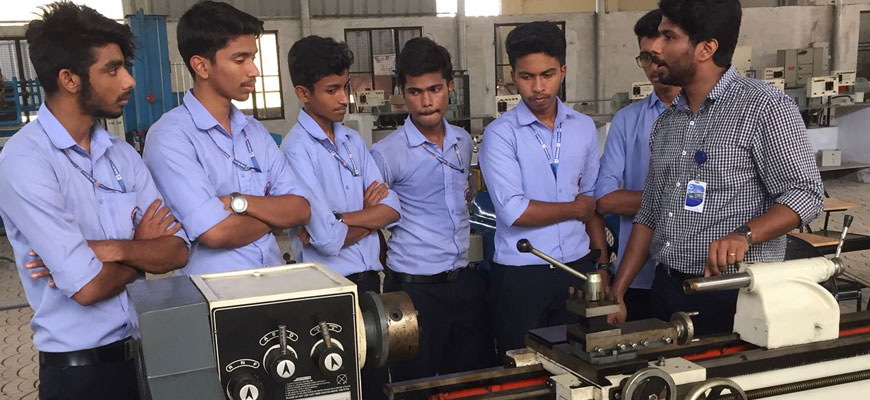Mechanical Engineering
Mechanical engineering concerns the design, construction and use of mechanical devices. This covers a broad range of machines such as internal combustion engines, aircraft engines, industrial equipment and manufacturing plants. Students studying Mechanical engineering cover a wide range of topics including mechanics, thermodynamics, fluid mechanics and materials. Mechanical engineering is a diverse subject that derives its breadth from the need to design and manufacture everything from small individual parts and devices (e.g., microscale sensors and inkjet printer nozzles) to large systems (e.g., spacecraft and machine tools). The role of a mechanical engineer is to take a product from an idea to the marketplace. In order to accomplish this, a broad range of skills are needed.

The mechanical engineer needs to acquire particular skills and knowledge. He/she needs to understand the forces and the thermal environment that a product, its parts, or its subsystems will encounter; to design them for functionality, aesthetics, and the ability to withstand the forces and the thermal environment they will be subjected to; and to determine the best way to manufacture them and ensure they will operate without failure. Perhaps the one skill that is the mechanical engineer’s exclusive domain is the ability to analyze and design objects and systems with motion.
Since these skills are required for virtually everything that is made, mechanical engineering is perhaps the broadest and most diverse of engineering disciplines. Mechanical engineers play a central role in such industries as automotive (from the car chassis to its every subsystem—engine, transmission, sensors); aerospace (airplanes, aircraft engines, control systems for airplanes and spacecraft); biotechnology (implants, prosthetic devices, fluidic systems for pharmaceutical industries); computers and electronics (disk drives, printers, cooling systems, semiconductor tools); microelectromechanical systems, or MEMS (sensors, actuators, micropower generation); energy conversion (gas turbines, wind turbines, solar energy, fuel cells); environmental control (HVAC, air-conditioning, refrigeration, compressors); automation (robots, data and image acquisition, recognition, control); manufacturing (machining, machine tools, prototyping, microfabrication).
This course aims to provide the mechanical engineers of the future with an education that covers :
• The breadth of this diverse subject
• Strong analytical and problem-solving skills
• A high degree of competence in engineering design field.
Typically, you take lectures and tutorial classes in the mornings with laboratory classes on some afternoons. Active learning is included in some programmes through a range of small problem based projects. This is complementary to the taught elements and is challenging and fun. Through the mix of learning from transitional lectures to team work and problem solving you will obtain: a thorough understanding of engineering science or construction through application of your knowledge; the ability to deal with the multi-disciplinary nature of modern engineering; a creative approach to problem solving; the self-motivated approach required for success in university education; and the interpersonal and management skills needed when working in teams to fixed deadlines.











